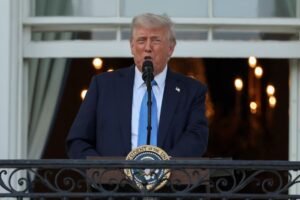The Federal High Court in Abuja dismissed on Tuesday the no-case motion filed by suspended Deputy Commissioner of Police Abba Kyari and his two brothers in a criminal case brought against them by the National Drug Law Enforcement Agency.
The NDLEA is prosecuting Kyari and his brothers, Mohammed and Ali, on 23 counts related to the full declaration of their assets.
The agency also accused them of concealing property ownership and converting criminal proceeds, which are punishable under Section 35(3)(a) of the NDLEA Act and Section 15(3)(a) of the Money Laundering (Prohibition) Act of 2011.
To substantiate the charges, the prosecution called ten witnesses and presented at least twenty pieces of evidence.
In response, Kyari and his brothers filed no-case submissions, claiming that the NDLEA failed to establish a prima facie case that would allow them to file a defense.
However, in a decision issued on Tuesday, Justice James Omotosho dismissed the no-case motions, stating that the prosecution had established a prima facie case against the defendants, compelling them to start their defense.
“In view of all the exhibits and the evidence of the prosecution, the defendants need to offer explanations in this regard,” the judge stated.
He underlined that the ruling did not constitute a finding of guilt but rather ensured that the defendants had the opportunity to present their case and exercise their fundamental right to a fair hearing.
“The evidence of the prosecution has established sufficient grounds for this trial to proceed. A connection between the defendants and the alleged offenses, no matter how slight, constitutes prima facie evidence.
“Holding that a prima facie case has been established does not imply guilt. It simply allows the defendants to exhaust their defense options before a final judgment,” Justice Omotosho explained.
He further emphasized that defendants are assumed innocent until proven guilty, while the prosecution bears the burden of proving its case beyond reasonable doubt, in accordance with Section 135(1) of the Evidence Act of 2011.
Following the conclusion of the prosecution’s case, the defendants filed a no-case submission, claiming that the NDLEA had failed to establish ownership of the claimed properties.
Kyari argued that under Section 128 of the Evidence Act, transactions involving state land could only be proven using certified true copies of title documents, and that no other type of evidence was admissible.
However, Justice Omotosho determined that the court would not analyze the evidence at this point, stating that the prosecution’s case merited a response from the defendants.
“I have carefully examined the evidence presented by the prosecution. It points to the establishment of a prima facie case against the defendants, requiring them to proffer explanations or a defense, especially considering the gravity of the allegations,” he said.
He went on to say that the defendants’ right to self-defense was a basic one guaranteed by Section 36 of the 1999 Constitution (as amended), and that it could only be waived expressly or via action.
“In the final analysis, the no-case submissions filed by the defendants cannot be upheld in the face of the evidence led by the prosecution. Consequently, the applications are overruled, and the defendants are hereby ordered to open their defense,” the judge ruled.
Justice Omotosho directed Kyari and his brothers to present their defense in three days before adjourning the case to November 4, 5, and 6 for further proceedings.









